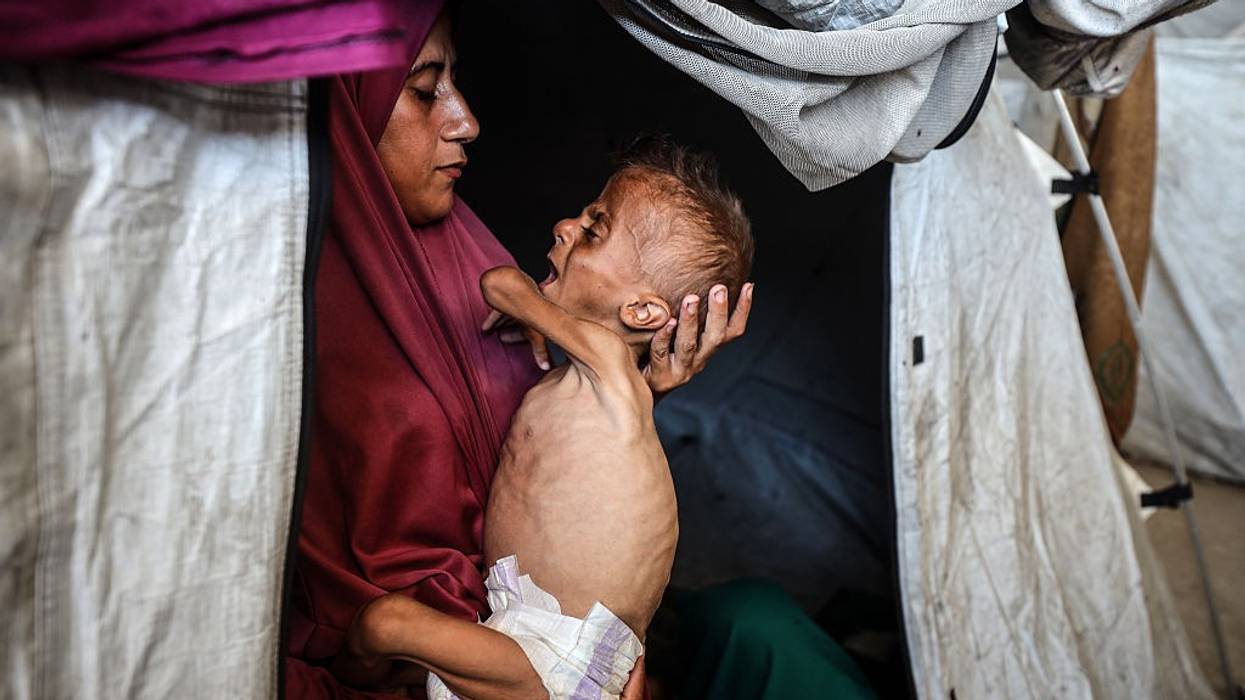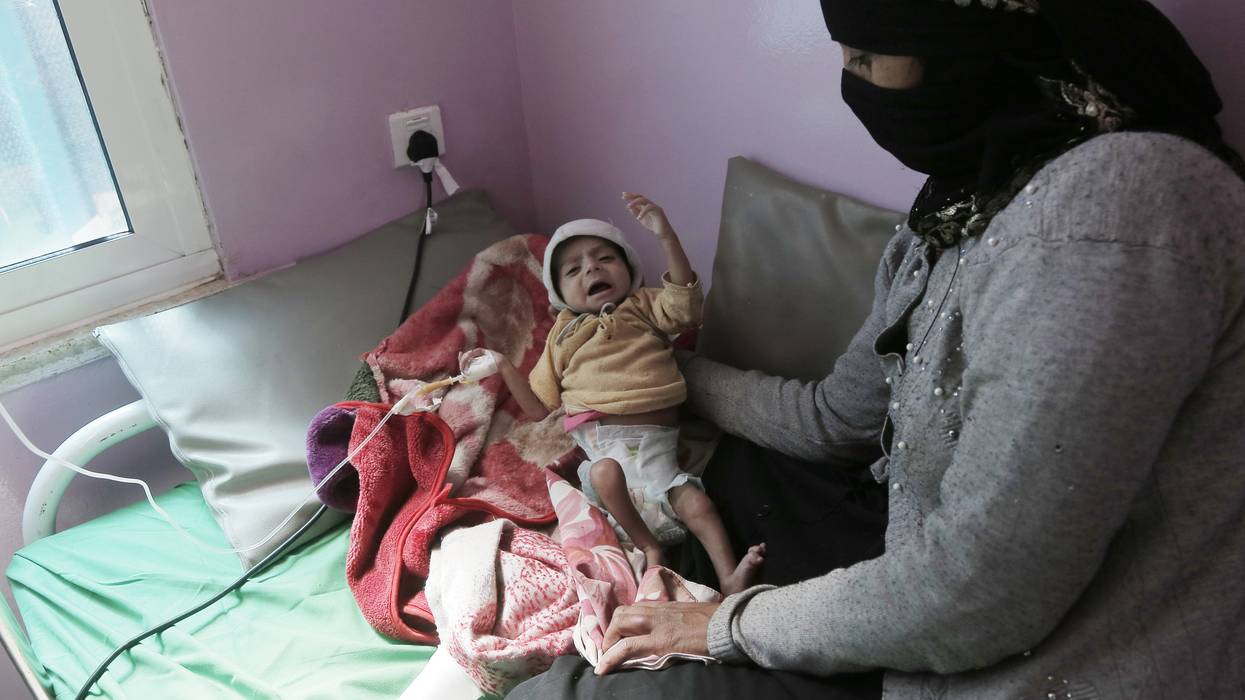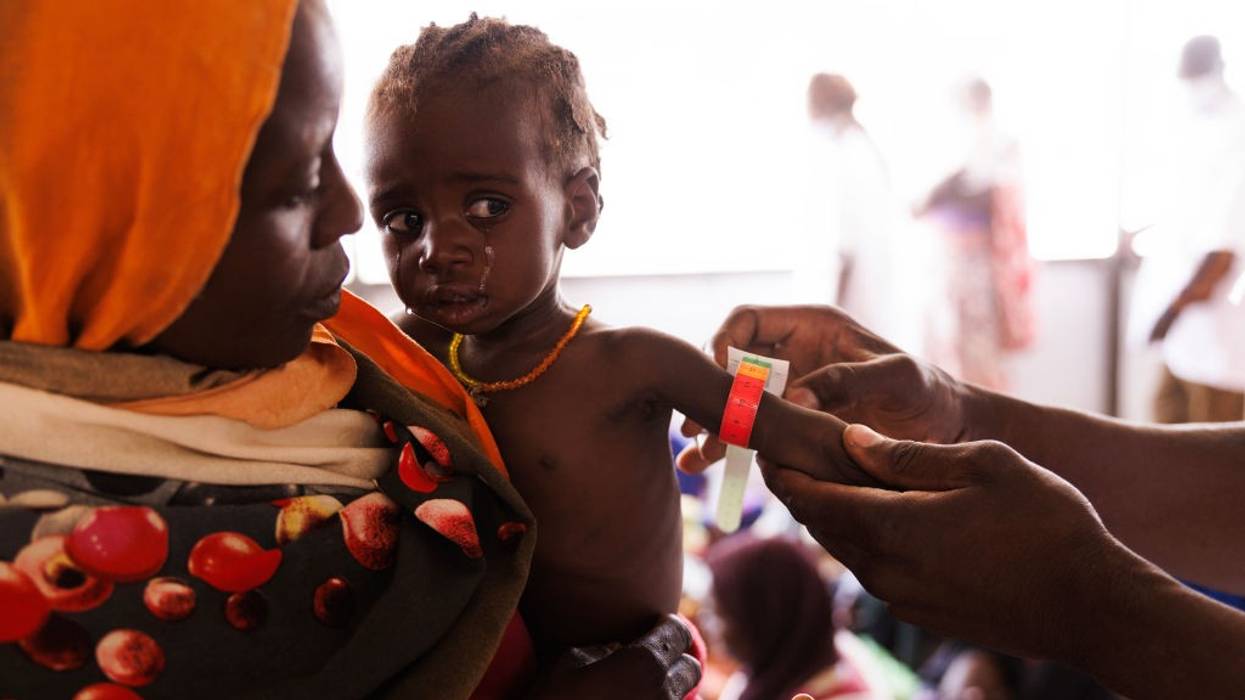'A Horror So Vast, It Could No Longer Be Ignored': US Media Finally Centering Starving Gazans
However, one critic lamented that corporate media "continues to act like starvation is the unfortunate byproduct of 'war.'"
As more and more Palestinians, mostly children, starve to death due to Israel's 657-day obliteration and siege of Gaza, reliably pro-Israel U.S. corporate media outlets in recent days have centered the starvation crisis—which began in October 2023—while critics have decried passive language and anti-Palestinian tropes used in some reporting.
The Washington Post published at least two articles on the subject in as many days, including an Associated Press story by Wafaa Shurafa, Sarah El Deeb, and Lee Keath titled "Dozens of Kids and Adults in Gaza Have Starved to Death in July as Hunger Surges" and an internal piece by Louisa Loveluck, Heba Farouk Mahfouz, Siham Shamalakh, Miriam Berger, and Abbie Cheeseman with the headline "Mass Starvation Stalks Gaza as Deaths Rise From Hunger." The authors of the latter article noted that "Israel has severely limited the amount of food entering Gaza, where society is on the brink of collapse."
The New York Times on Friday published a morning newsletter article by Lauren Jackson titled "The Starvation Spreading in Gaza," which stressed that "hunger in Gaza is not new" amid an Israeli blockade that has choked the strip "for nearly two decades." Jackson's piece followed a Thursday front-page story by Rawan Sheikh Ahmad, Isabel Kershner, and Abu Bakr Bashir, with images by Palestinian photographer Saher Alghorra, headlined "Gazans Are Dying of Starvation."
Palestinian peace activist Ihab Hassan, who heads the Agora Initiative's Human Rights for Gaza project, said on the social media site X, "Starvation in Gaza made it to the front page of The New York Times—a horror so vast, it could no longer be ignored."
Carnegie Middle East Center senior editor Michael Young wrote on X, "Don't underestimate that a mainstream media outlet in the U.S. is finally stating the obvious, that Gazans are dying of starvation."
"But it's not as if they're just dying, for no reason; they are being denied adequate amounts of food by Israel, therefore are being killed," Young added. "Nonetheless, that the NYT presents the story in so blunt a way, under a heartbreaking photograph, must qualify as a turning point of sorts given how reluctant U.S. media outlets are to say anything bad about Israel."
Assal Rad, a fellow at the Arab Center Washington D.C. and frequent media critic, offered a more accurate headline for the Times story—"ISRAEL IS STARVING PALESTINIANS TO DEATH."
Fairness & Accuracy in Reporting's Counterspin blog took aim at the Post's "Mass Starvation Stalks Gaza" headline, noting that "it's actual human beings stalking Gaza, who could right now choose to act differently."
Still, there have recently been remarkable discussions about Gaza in U.S. corporate media outlets that would have been all but unimaginable during past Israeli attacks on Palestine.
CNN's "NewsNight" with Abby Phillip on Thursday aired a panel discussion titled, "Why Is the U.S. Silent About the Starvation in Gaza?" The segment featured journalist Peter Beinart, who highighted the International Criminal Court's issuance of arrest warrants for Israeli Prime Minister Benjamin Netanyahu for alleged crimes against humanity and war crimes including forced starvation, U.S. support for Israel's ethnic cleansing of Gaza, and the Israeli government's ban on foreign journalists entering the strip.
"To say the United States is silent, it's much worse than that," Beinart said. "We are profoundly complicit and deeply responsible. It is our weapons that enforce this starvation. It is our diplomatic efforts that prevent international justice from being done."
"The blood is on our hands!" he stressed.
The CNN segment also featured a video clip of United Nations World Food Program Director Cindy McCain, whose warnings of a looming starvation emergency in Gaza began in October 2023.
Asked by Phillip if the images of starving Gazans making headlines around the world marked "an inflection point," Beinart replied, "Why did it take this long?"
Meanwhile, Israel's oldest newspaper, Haaretz, ran an editorial Thursday titled "Israel Is Starving Gaza."
"Gaza is starving, and Israel is responsible," the Haaretz editors wrote. "According to the Gaza Health Ministry, 111 people have died from malnutrition since the war began, most of them children. Alarmingly, 43 of those deaths occurred just in the past week."
"The famine that has been created is another facet of Israel's cruel inhumanity towards the people of Gaza," the editors added. "It constitutes a war crime and a crime against humanity and is a clear violation of the orders issued a year and a half ago by the International Court of Justice in The Hague."


